



Tyrna village, Cherrapunji, Meghalaya


Tyrna is a hamlet in the northeastern Indian state of Meghalaya’s East Khasi Hills district. Just below the CherrapunjiLaitkynsew bridle trail, a series of stone stairs link the settlement with the neighbouring town of Nongriat. A diverse variety of butterflies and moths call it home. The Khasi tribe is breaking patriarchal traditions and offering the urban lot some real ambitions, which is what find most wonderful about them. They live a sustainable lifestyle. They live in a wooden house, and the bamboo flooring in their bathrooms allows bath water to trickle down the floor and return to the earth. How incredible! They grow tomatoes, pineapples, and coffee in their own backyard garden. Their cash crop, which is sold on the open market, is spices. They gather wild honey, and couldn’t help but buy some for myself since it was so clean.
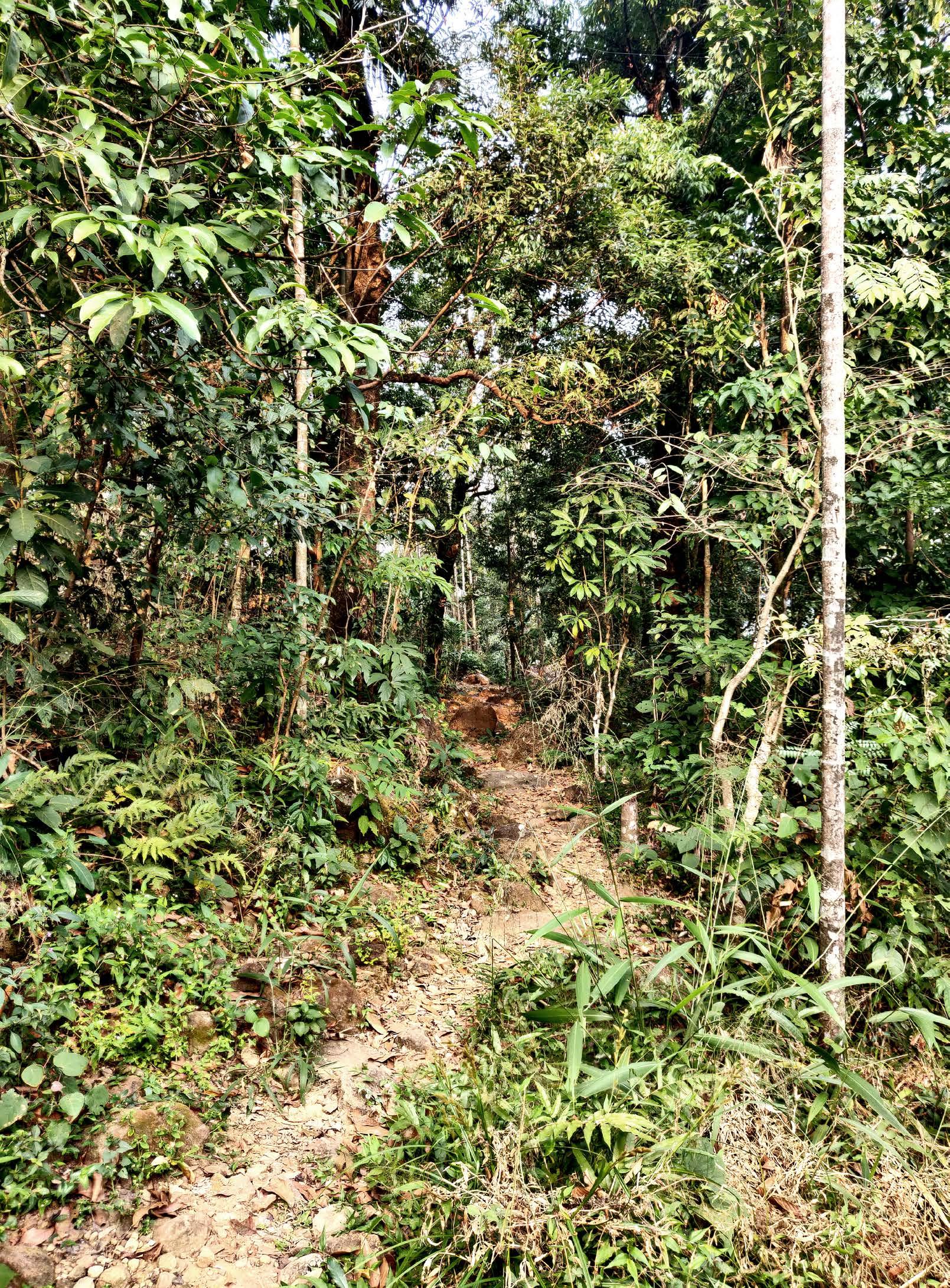

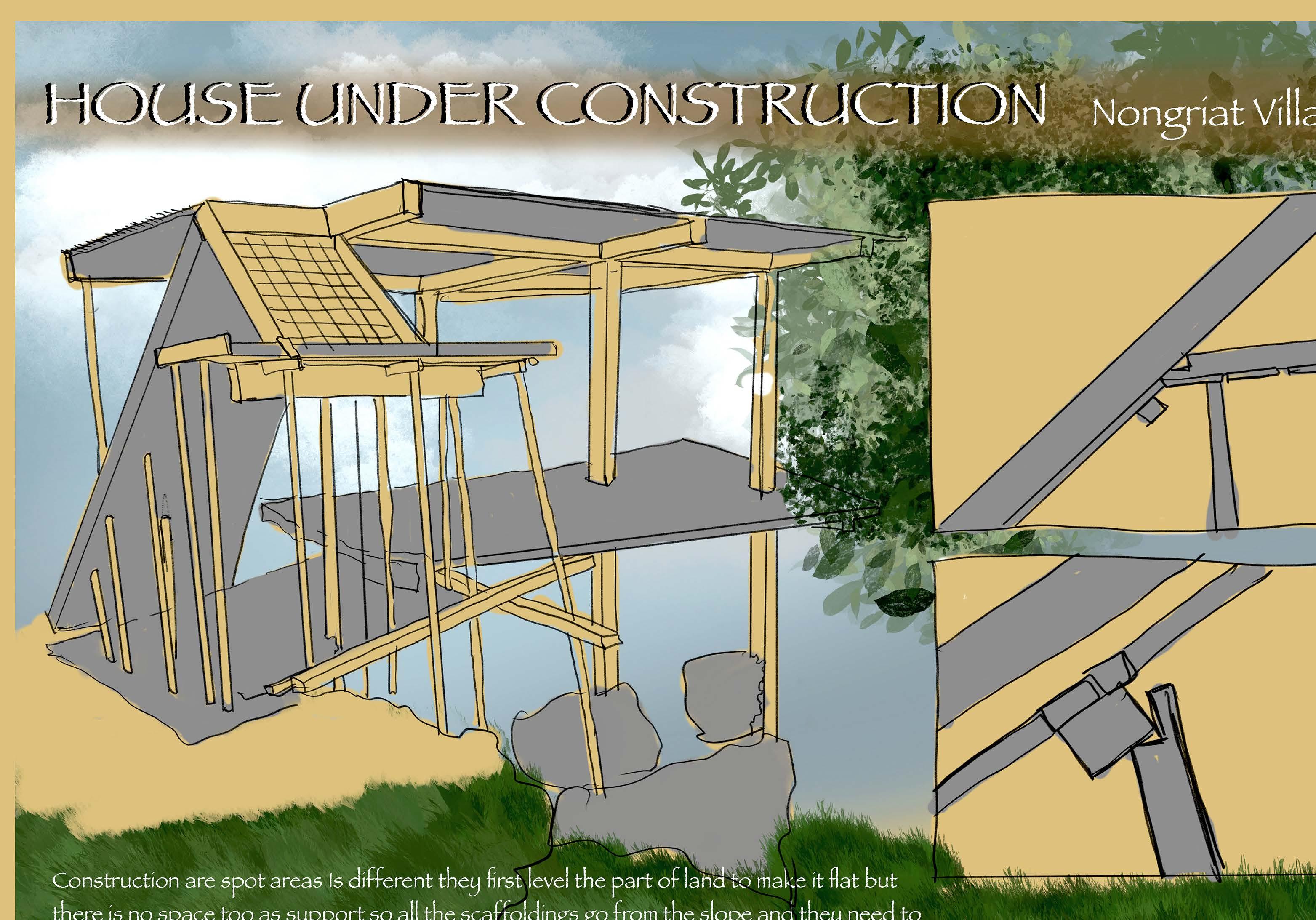
Fresh fruits and spices available on the trek!

They also dry mushroom which grows naturally on this terrain.







Single Root Bridge, Cherrapunji, Meghalaya


Many people consider bridges to be among the best things that humanity have ever made. But Meghalaya’s Living Root Bridges are a breathtaking example of a natural wonder. The tangled, heavy roots that make up the ever-evolving Meghalaya bridges give the structure strength. Around two centuries ago (180 years specifically), veterans of the Khasi tribe who lived in Meghalaya inserted rubber tree roots into hollow canes of Areca nut palm that met halfway across the stream. This was how the concept of Meghalaya’s living bridges was born (the roots were properly fed and cared for until they expanded to the point where they could reach the opposing bank, become fully intertwined, and become strong enough to support great weight. The roots of rubber trees, also known as Ficus elastica trees, are used to construct the live root bridges. It takes 10 to 15 years to perfect the form of some of the root bridges, some of which are over 100 feet long). UNESCO has designated Meghalaya’s Living Root Bridges as World Heritage Sites.


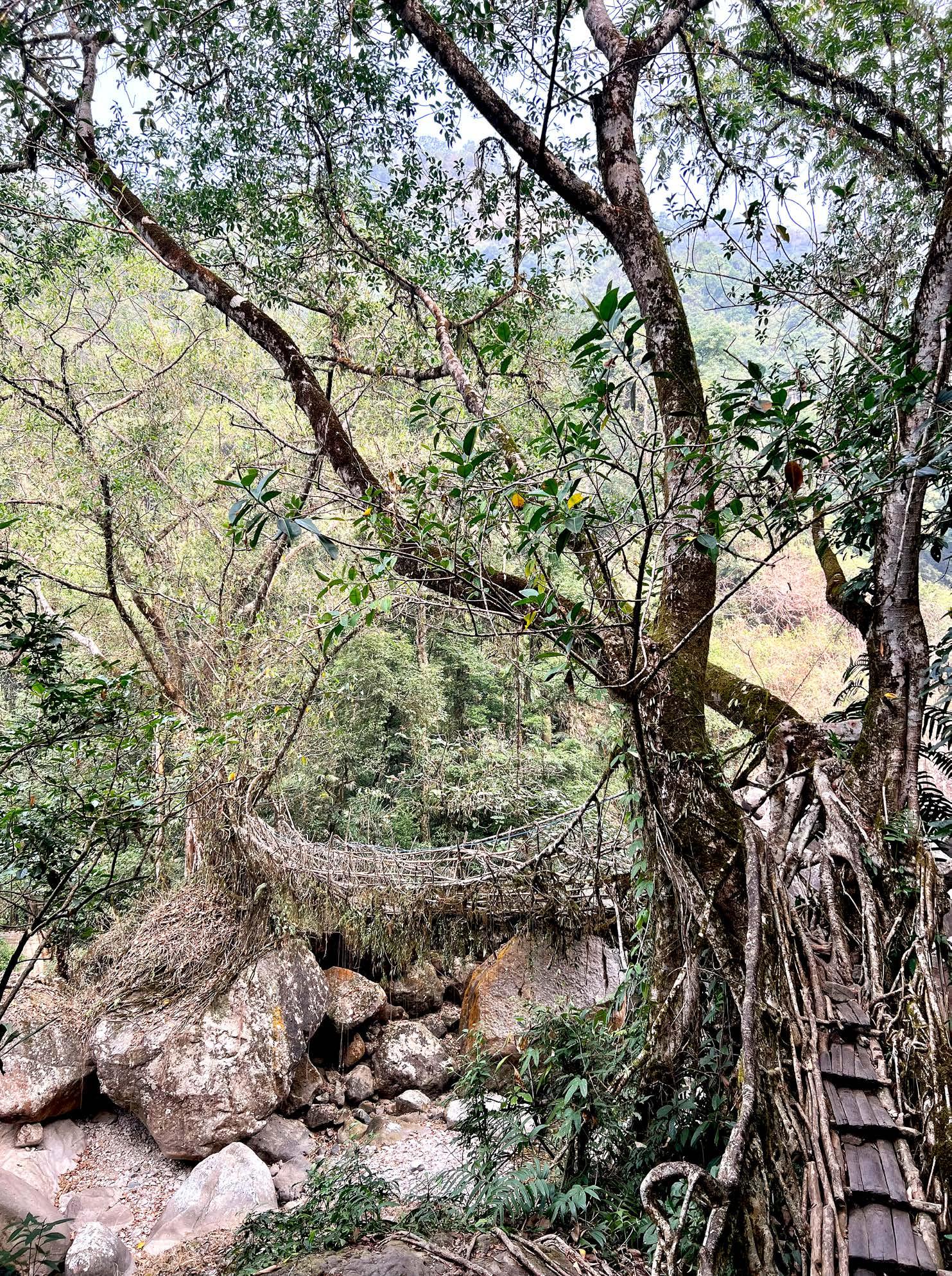







Double Root Bridge, Cherrapunji, Meghalaya


The 30 meter-long bridge is the longest known live root bridge, standing at 2400 feet, which also implies that getting to the bridge requires a 2400 foot fall. Cherrapunji, located 56 kilometres from Shillong and boasting the honour of being referred to as one of the most stunning and magnificent places on earth, is a must-see location in Meghalaya. Tyrna, which serves as the base settlement, is a 3 kilometre hike from the bridge. As there aren’t many buses travelling along this route, hitching or taking a rideshare are the fastest ways to get to the Double-decker Living Root Bridge. To easily cover the distance from Tyrna village, you must be in excellent physical condition.






“Co-existence/dependence of nature and the built environment observed, absorbed and lived in Meghalaya this December. The treks, hotels and our stays, each and every street, village fringes and roadside stalls, all of them have a unique seepage of the existing flora and the layered built enveloped with beautiful traces of human life.”
 - Khushi Patel
- Khushi Patel
Nohkalikai falls, Meghalaya
The highest plunge waterfall in India is Nohkalikai Falls. It stands about 340 metres tall. The waterfall is situated close to Cherapunji, one of the wettest locations on Earth, in the Indian state of Meghalaya. Nohkalikai Falls are fueled by rainfall gathered at the top of a very small plateau, and their output declines from December to February during the dry season. A plunge pool with unusually green water may be found below the falls.

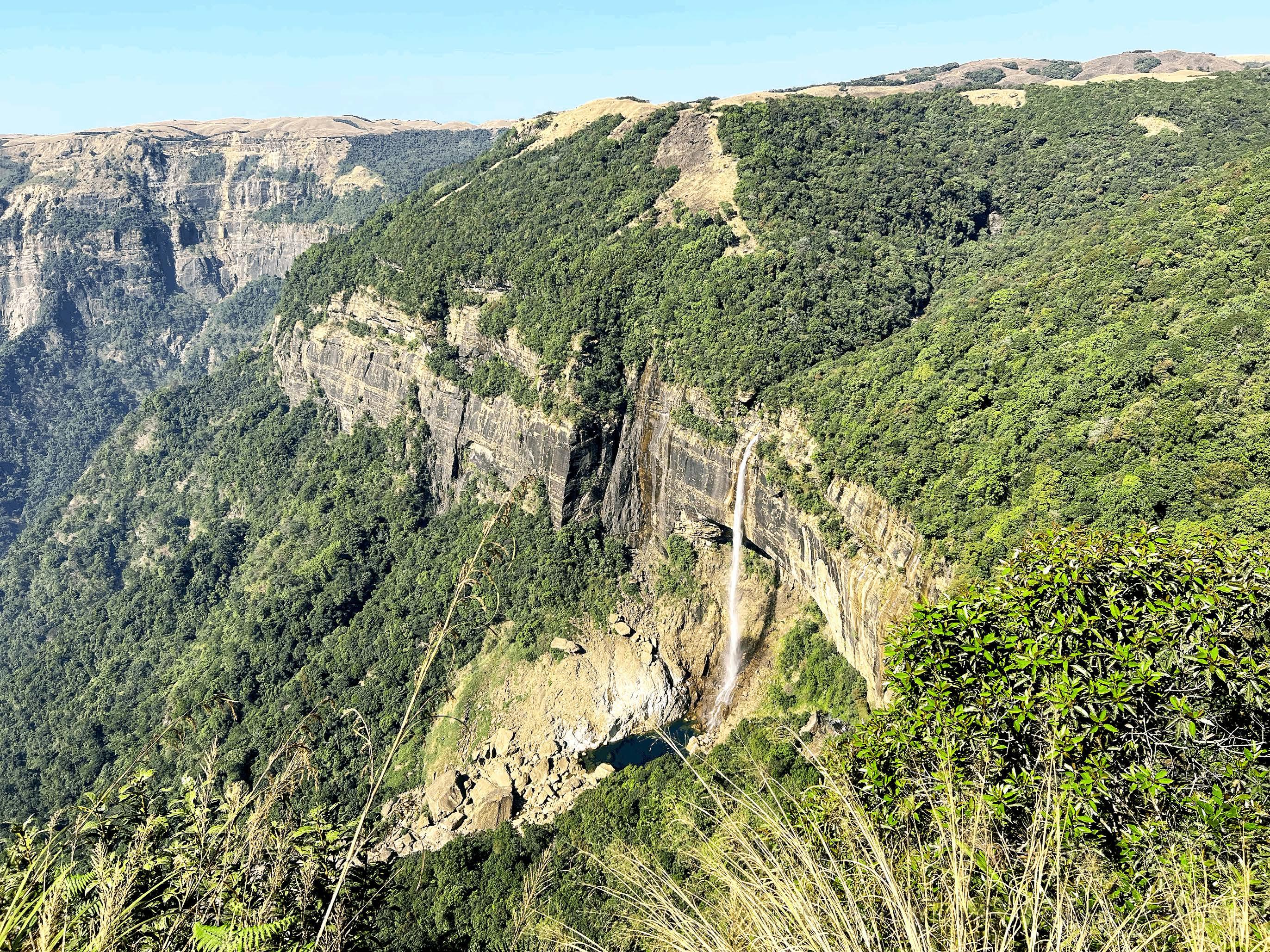



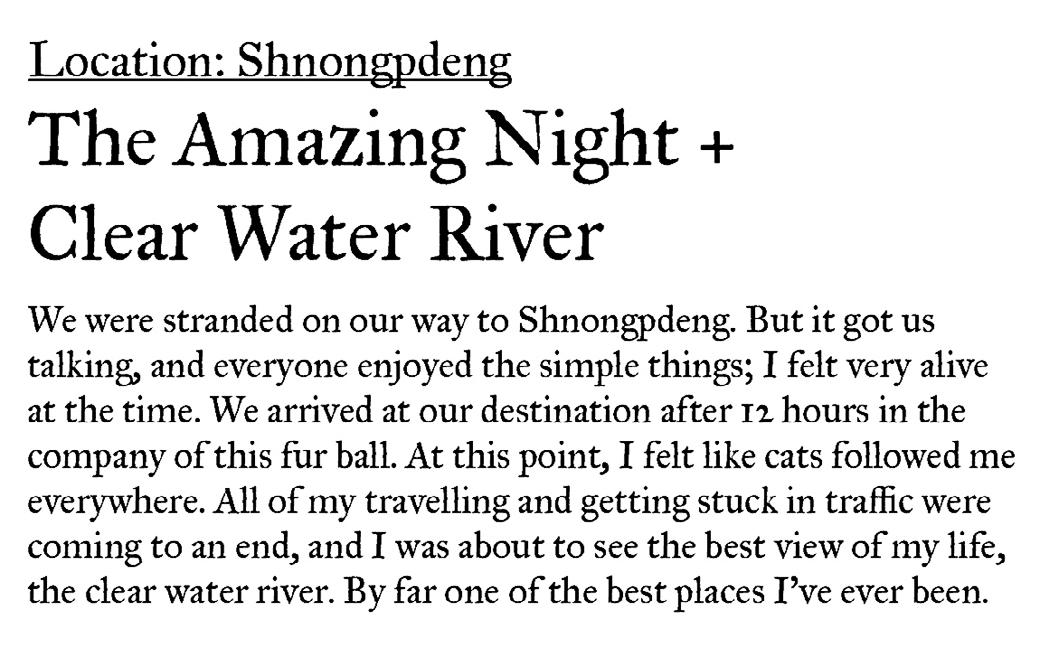
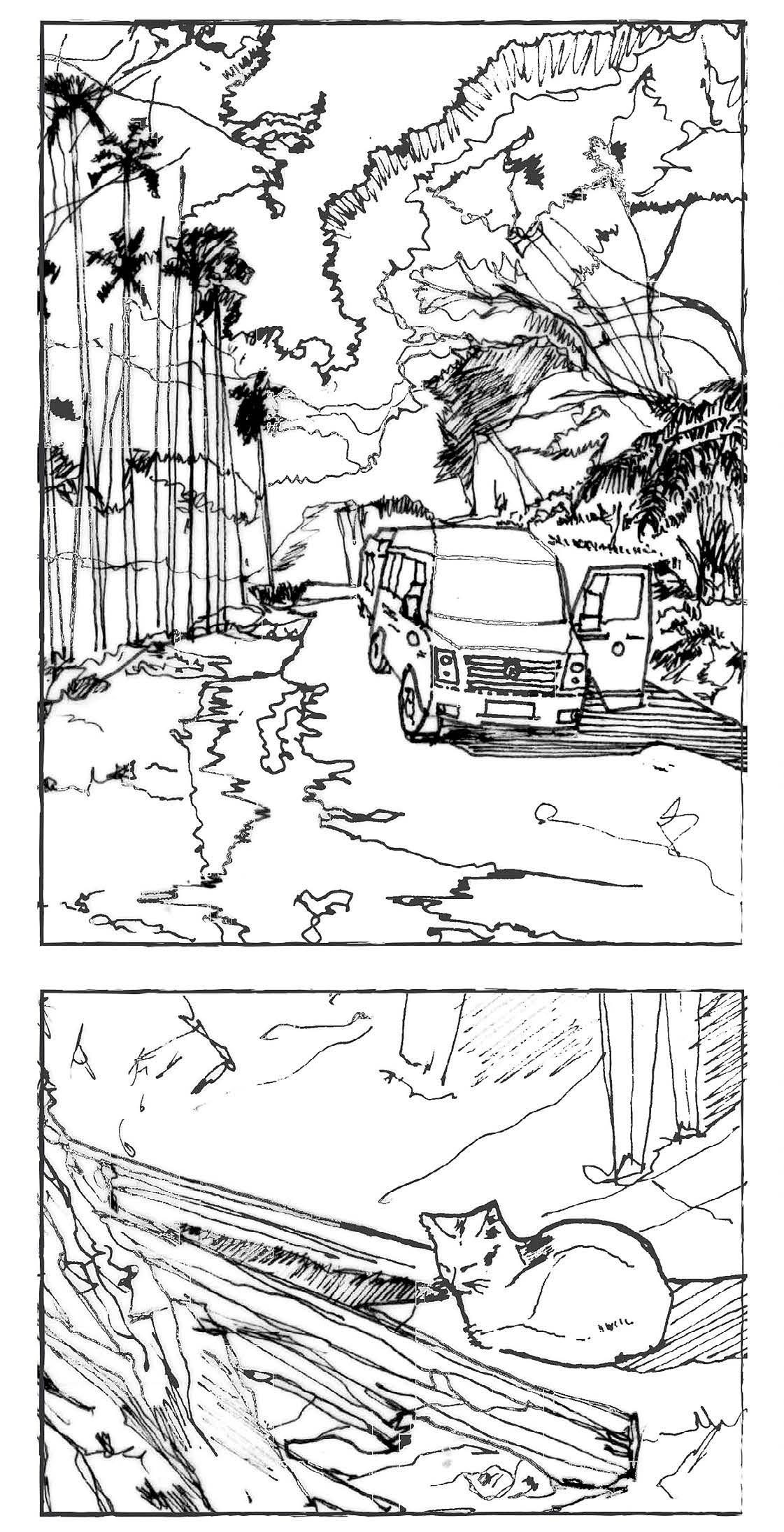
These areas are densely forested, and hence, one can see so many butterflies and bees around. Also, it is along a riverbank, so the microclimate is very established.


It was a tough time for everyone to trek on these difficult paths, as not everyone does trekking as a regular activity. but still, no one gave up, got tired, reached, and enjoyed! Because the locals traverse these areas regularly, one can easily learn trekking and walking techniques.

Shnongpdeng, Umngot river/Dawaki river
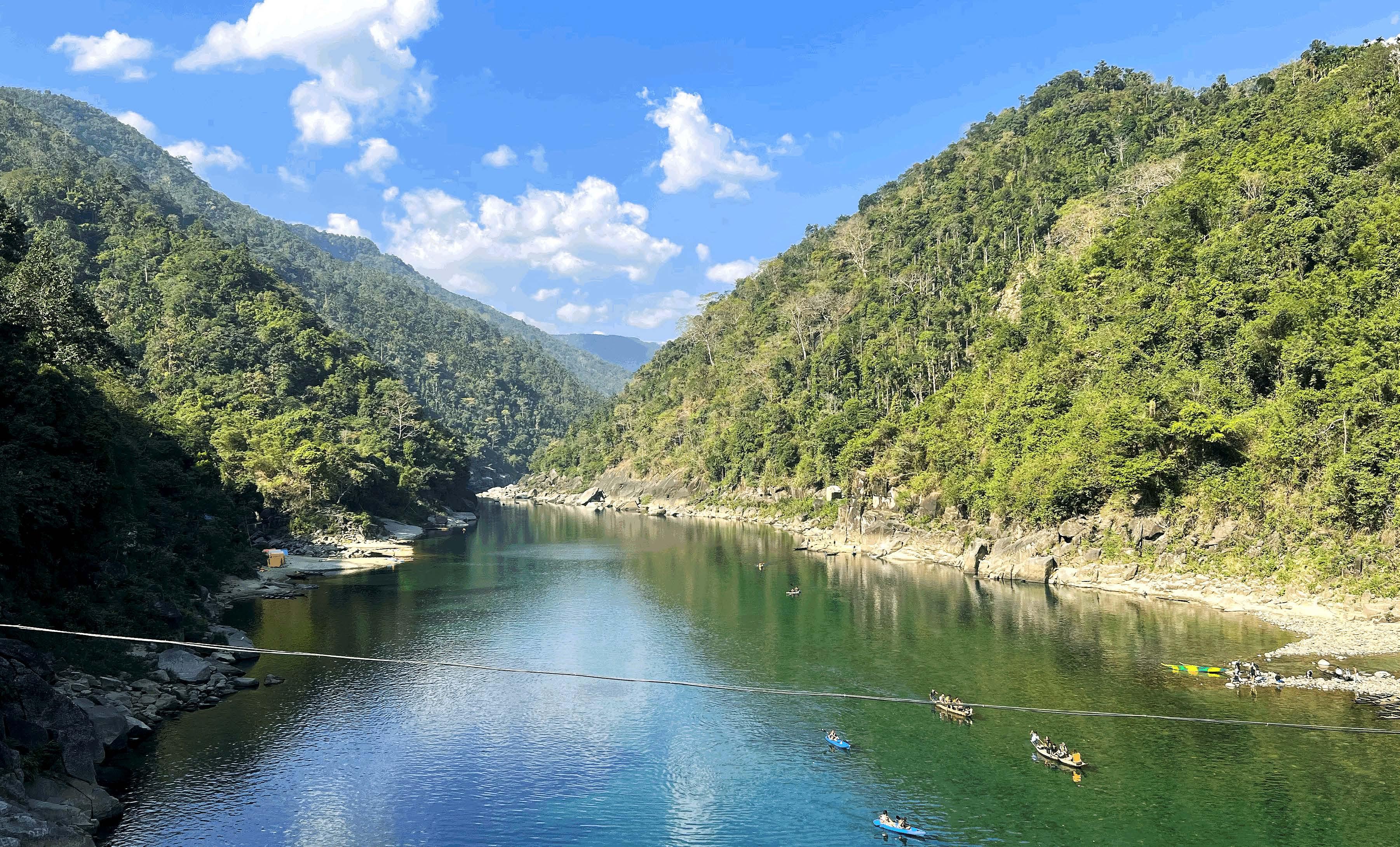

The primary draws of Dawki and Shnongpdeng are the Umngot River’s clean waters, the lush surroundings, the traditional way of life, and the riverside beaches. Nearby areas at the base of Meghalaya’s powerful southern ranges A fantastic place to start your exploration of the adjacent Shnongpdeng and Darrang, two renowned riverside camps, is the border town of Dawki in southern Meghalaya. When the hills and plains of northern Bangladesh converge, you will see a blending of civilizations and shifting geography. When the sun sets over the nearby plains and the soft, black river, you may enjoy some breathtaking nighttime views. 8 kilometres up the twisting Umngot from Dawki is Shnongpdeng Village. At the peak pre-monsoon, fall, and winter seasons, the Umngot River may be characterised as having waters so transparent, you can gaze into the bottom and count the stones. The activities in Shnongpdeng will keep you entertained for days, whether you want to take a leisurely boat ride through a section of river bordered by trees or you want to dive into the river while wearing scuba gear.

“The several places in Meghalaya that we visited each had their own own culture, typography, and environment. People in these locations are so concerned about the activities and behaviours they engage in since it so successfully deceived them. From the landscapes in Cherrapunji to the busy streets in Shillong, the trip to Meghalaya was more than what we visually experienced. The stories behind the travel makes it worth cherishing. The drawings capture some of those key moments for me during the trip.”
- Deepak V.









“Winter school taught me to look at things from a different perspective. It helped me become more sensitive to design and how the user is the most important part of it. I learned that the context of a place is defined not only by its climate and topography, but also by its people and their lifestyles.It was interesting to see settlements constructed from various local materials, using traditional techniques, thus defining the vernacular architecture of the place.”
 - Prachi Surana and Maulik Soni
- Prachi Surana and Maulik Soni
